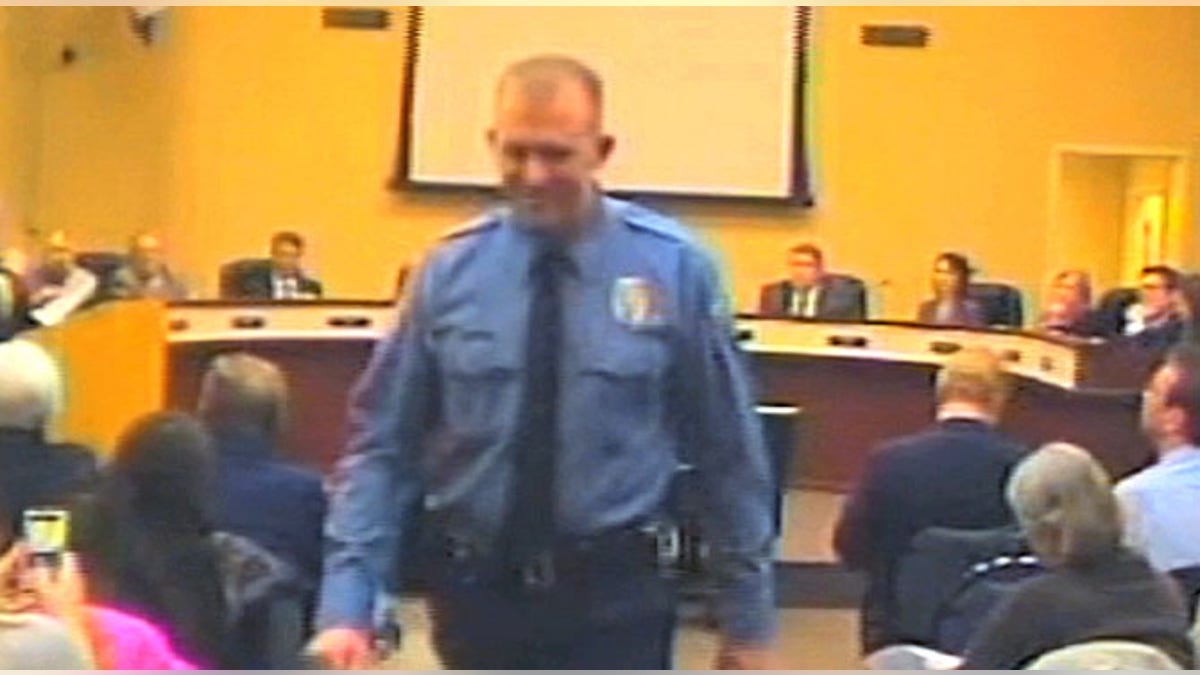
Feb. 11, 2014: Officer Darren Wilson attends a city council meeting in Ferguson (AP Photo/City of Ferguson, File)
Darren Wilson, the Ferguson, Mo., cop whose shooting of an unarmed black man last summer triggered race riots, broke his silence but didn't break much news in a 10,000-word interview in The New Yorker.
The lengthy article includes biographical details about the 29-year-old former police officer, who says he lives in fear with his wife and their newborn, and that efforts to find new work have proven fruitless. Police departments Wilson has interviewed with told him he is "unemployable," he said. Although a grand jury declined to indict him and a federal Department of Justice probe cleared him of wrongdoing, it is clear that the Aug. 9, 2014 deadly confrontation with 18-year-old Michael Brown weighs heavily on Wilson.
He found work stocking inventory in a boot store but had to quit after only two weeks because he was harassed by reporters, Wilson said.
“No matter what I do, they try to get a story off of it,” he told the magazine.
Wilson does not comment substantively on the deep racial divisions bared by the shooting, which led to riots both immediately afterward and following the grand jury decision. He said he did not even bother to read the Department of Justice report that cleared him, yet found the department guilty of systematic racial profiling.
“You can make those numbers fit whatever agenda you want,” Wilson said in the article.
He did however, agree with one part of the report---that the system of police fines was abusive towards the residents of Ferguson.
“What the hell is the point?” Wilson said, referring to one officer he knew of who once issued 16 tickets, saying that the fines could create a “vicious cycle” where people unable to pay their fines would be hit with more and more of them.
“That’s almost abusive of power,” he said.
Wilson does say the following about Brown, a comment some may see as callous and others sympathetic.
“Do I think about who he was as a person?” Wilson said. “Not really, because it doesn’t matter at this point. Do I think he had the best upbringing? No. Not at all.”








































